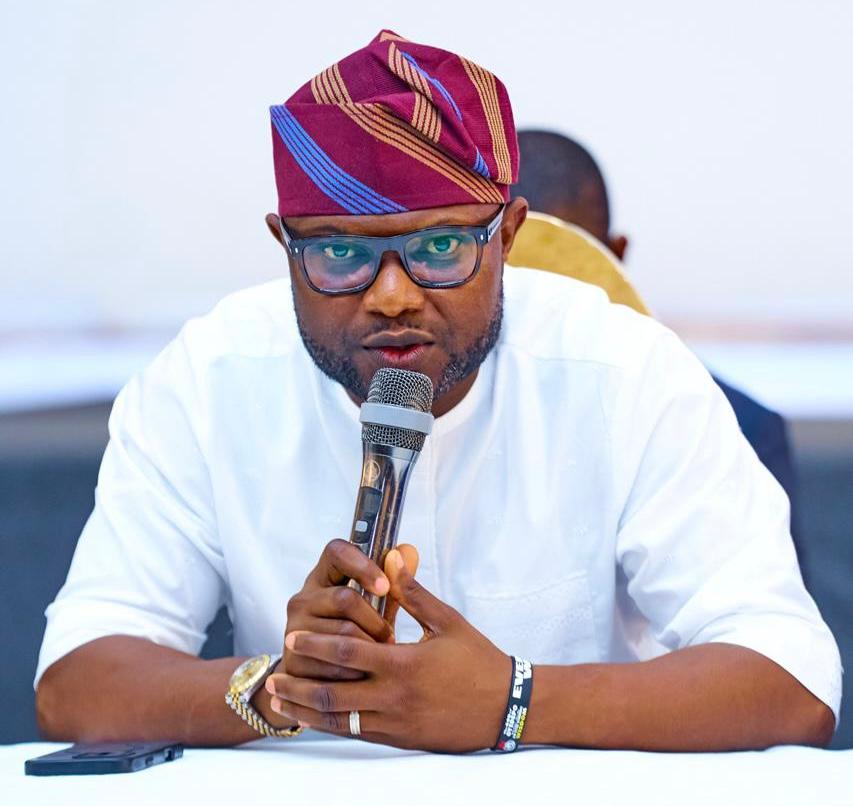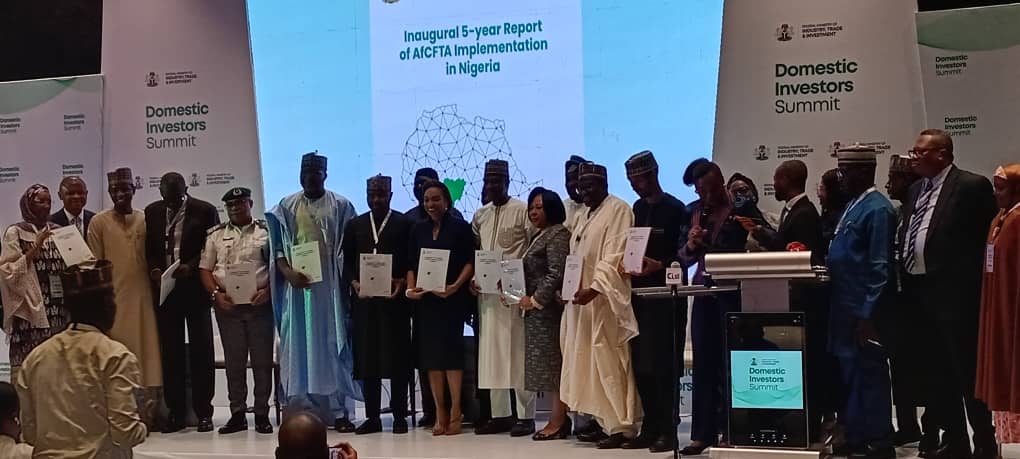By: Goodluck E. Adubazi, Abuja.
The Federal Ministry of Industry, Trade and Investment convened its inaugural Domestic Investment Summit at the Afreximbank Trade Centre in Abuja on Monday, 21st of July, 2025, with a clear call to prioritize homegrown enterprise under the banner of the “Nigeria First” policy.
The high-level gathering of government officials, investors, and policy stakeholders sought practical pathways to economic transformation rooted in local capital, talent, and industry.
The Permanent Secretary of the Ministry, Ambassador Nura Abba Rimi, opened the summit by emphasizing that in an era of shifting global trade dynamics, Nigeria’s economic strategy must begin at home.
He explained that the “Nigeria First” policy is a strategic pivot aimed at driving local production, expanding domestic value chains, and building a globally competitive workforce. This, he noted, aligns with President Bola Ahmed Tinubu’s 8-point Renewed Hope Agenda.
“This summit reaffirms the critical role of local enterprise in shaping a more resilient and competitive economy,” Ambassador Rimi said. “We are not starting from zero. Nigeria already has the ingredients for transformation. The time is now.”
Minister Oduwole: “This is More Than a Convening”
In her keynote address, Hon. Dr. Jumoke Oduwole, MFR, Minister of Industry, Trade and Investment, described the summit as a deliberate and strategic session requested by President Tinubu to co-develop clear reforms with the private sector.
“This summit is not about fanfare—it’s about results,” Oduwole stated. “We are here to turn ambition into productivity and productivity into competitiveness. Mr. President has mandated this forum to co-create solutions with our most vital investors—the domestic ones.”
Reflecting on her previous service under President Muhammadu Buhari, she credited the former leader with laying the foundation for the Ease of Doing Business framework and praised President Tinubu for prioritizing Nigeria’s transition to a \$1 trillion economy by 2030.
Turning Policy into Action: Key Objectives and Achievements
The summit focused on four core goals:
1. Demystifying Policy Reform
Participants examined how fiscal, monetary, trade, and industry reforms impact the investment landscape.
2. Tackling the Capital Gap
Discussions centered on unlocking pools of domestic funding, such as pension fund investments and enhancing credit guarantees for SMEs.
3. Expanding Market Access
Stakeholders called for streamlined export processes and improved logistics to enhance Nigeria’s competitiveness across Africa.
4. Creating Regulatory Sandboxes
Proposals were made for co-creating policy frameworks that better reflect business realities and reduce compliance burdens.
The Ministry presented bold economic targets for 2025, including:
\$6 billion in foreign aid and portfolio investment
\$6.5 billion in non-oil exports
A 20% increase in trade volumes
Creation of 200,000 export-led jobs
Already, exports rose by 24.75% in Q1 of 2025, reaching \$1.79 billion.
Private Sector Speaks: Funding, Exports, and Infrastructure Gaps
During panel sessions, stakeholders identified key barriers and offered solutions to mobilize domestic capital and improve export performance.
Unlocking Funds:
Policy reforms were proposed to free up pension fund capital and ease banking sector restrictions.
Expanded use of credit guarantees and the capital market were encouraged, including tax incentives for equity investment in SMEs.
Banks were urged to shift focus from operational financing to capital expenditure support.
Market Access:
Exporters pushed for a “single window clearance” for inspections and certifications to eliminate bureaucratic delays.
There were strong calls to improve port and shipping infrastructure.
A national shipping line was proposed to aggregate exports and reduce logistics costs.
These recommendations align with the Ministry’s push to operationalize the African Continental Free Trade Area (AfCFTA), giving Nigerian entrepreneurs access to a \$3.4 trillion market.
Nigeria First in Practice: Emerging Success Stories
The summit spotlighted firms like Innoson Motors and Subtech, makers of Africa’s first fully electronic vehicle assembly plant, as exemplars of the “Nigeria First” policy. These companies are driving industrialization from within, creating jobs and substituting imports through innovation and local production.
Minister Oduwole also announced the upcoming launch of Nigeria’s first National Export Trading Company in partnership with Afreximbank and the Nigeria Commodity Exchange. The platform is expected to offer critical export support for MSMEs and smallholder farmers, furthering Nigeria’s agricultural and trade ambitions.
In her remarks, Minister Oduwole reiterated the government’s commitment to a business-led transformation.
“We are not just open for business—we are building businesses at home,” she said. “Our entrepreneurs are the builders of jobs, of resilience, and of a prosperous future. We are here to listen, to act, and to co-create with you.”
With structured reforms, strategic investment platforms, and robust policy coordination, Nigeria’s journey toward economic sovereignty is already underway. The summit concluded with a strong consensus: for Nigeria to lead, it must first invest in itself.













